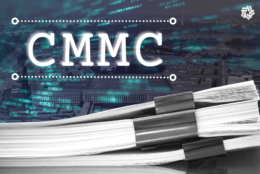Department of Defense
-
Defense contractors are parsing out a nearly 250-page proposed rule. It landed sort like a lump of coal on Christmas Eve. It is all about a program known as Cybersecurity Maturity Model Certification (CMMC).
December 28, 2023 -
In 38 years at NASA, today's Federal Drive guest has done lots of things. As an astronaut, he flew three space missions, commanding two of them. He oversaw retirement of the Space Shuttle. He rose to associate administration, the number three ranking person at NASA.
December 08, 2023 -
The Department of Veterans Affairs says its new Electronic Health Record (EHR) hasn't seen a total outage in more than six months.
November 15, 2023 -
If Congress ever passes the 2024 Defense authorization bill, keep your eye on Section 804. It's now in the Senate version, and it is aimed at granting the Defense Department the rights to increasing amounts contractors' data more than it appears DoD needs for maintenance and operation of what it buys. Section 804 seems innocuous at first glance.
November 15, 2023 -
The Defense Department’s new data, analytics and artificial intelligence strategy focuses on agile adoption throughout the department to help get this technology in use quickly.
November 02, 2023 -
They work on TikTok, Instagram and YouTube. They work just about everywhere. So why not short videos to pitch ideas to Defense Department program managers and contracting officers? That is the idea behind the year-old Tradewinds Project under the DoD's chief digital and artificial intelligence office.
October 30, 2023 -
Federal facilities in three more states will be able to buy carbon free electricity as the government expands the availability of this energy to its facilities to achieve its sustainability goals and propel this type of clean energy.
October 25, 2023 -
Using artificial intelligence, analysts at Govini have build a digital twin of the U.S. industrial base. It is a disturbing picture. Govini's analysis shows how far behind the United States military is in bringing new technology to bear.
October 24, 2023 -
Only 30% of military personnel transitioning to civilian life start the mandatory transition assistance program on time, a concern for senators who agreed on the importance of the program to help veterans and those transitioning to civilian life.
October 24, 2023 -
Conference work on the National Defense Authorization Act for 2024 proceeds, even as nothing else in Congress seems to be working. As always, the NDAA has provisions affecting Defense contractors.
October 17, 2023 -
The continuing resolution, which lasts until November 17, takes a six-and-a-half week bite out of fiscal 2024's calendar. In a sense, it resets the countdown to a government shutdown, especially if House Republicans succeed in ousting Speaker Kevin McCarthy, which, in case you hadn't heard...happened. Contractors have been sorting out what it all means. For an update, Federal Drive Host Tom Temin spoke with Stephanie Kostro, the Executive Vice president for Policy at the Professional Services Council.
October 04, 2023 -
Recent analysis from the Congressional Budget Office found that on average, "enlisted personnel receive cash compensation that is higher than that received by about 90% percent of civilians of the same age and education.” So what's the best way to capitalize on that?
October 03, 2023 -
A venture capitalist-turned-professor and business manager outlines the case for a new approach to how a fast-moving sector of the economy can help the government.
September 15, 2023 -
A new report from RAND Corporation reviewed two distinct technologies to illustrate ways the Air Force needs to align its goals with expense and risk in developing new space technology.
September 11, 2023 -
The Cybersecurity Maturity Model Certification program has been in gestation at the Defense Department longer than a baby elephant. CMMC is still not operational, but, boy, has it produced documents. Just out, new scoping documents. Do contractors need to read them? To discuss that topic, Federal Drive Host Tom Temin was joined in studio by Holland and Knight contracting attorney Eric Crucius.
September 08, 2023












